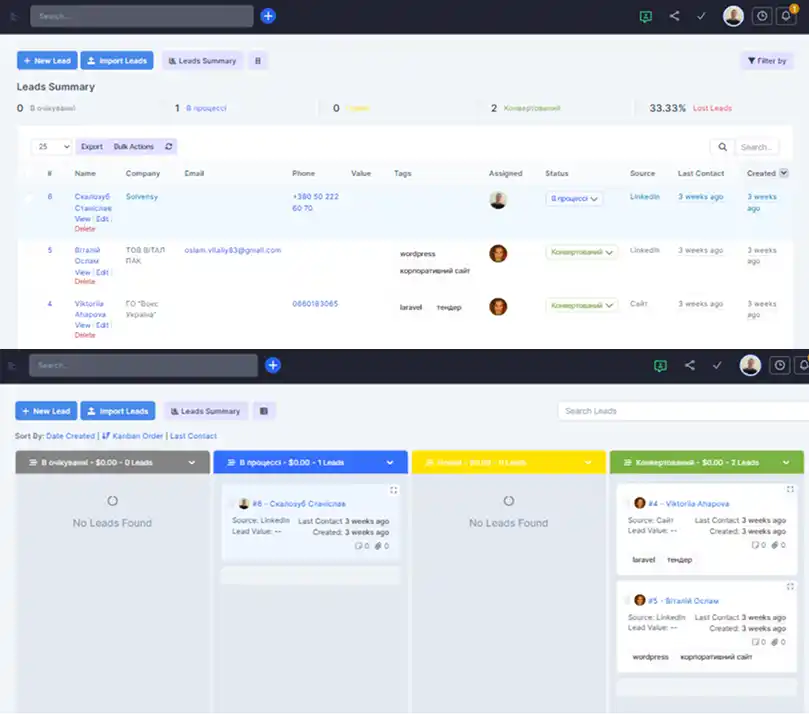

2025-07-25
Why Is It Important to Automate Lead Management in Business?
Automate Lead Management: Boost Sales & Growth
Tags:
In today's highly competitive business world, where every potential client (lead) holds immense value, effective and timely management of these leads becomes a decisive factor for success. Manual processing and tracking of leads can be time-consuming, prone to errors, and lead to lost opportunities. This is precisely why automating lead management is not just an advantage, but a necessity for your business's growth and stability.
What are Leads and Lead Management?
Leads are potential customers who have shown interest in your products or services. This interest can manifest in various ways: filling out a form on a website, a phone call, subscribing to a newsletter, interacting on social media, etc.
Lead Management is a systematic process that encompasses all stages of working with potential clients: from attracting and collecting information about them, to qualification, distribution among managers, nurturing, and ultimately, conversion into actual buyers.
Why Is Automation Key to Success?
Automating lead management processes using specialized tools, such as CRM systems, offers a number of significant advantages:
- Instant Response and Increased Conversion: Studies show that companies responding to leads within the first 3-15 minutes have a significantly higher chance of converting them into deals. Automated systems allow for immediate collection and distribution of leads, ensuring quick contact and preventing potential clients from "cooling off" or turning to competitors.
- Centralized Data Storage and Full Control: Instead of scattered spreadsheets, notes, and emails, a CRM system centralizes all lead information in one secure location. This provides convenient access to data, allows tracking of interaction history, and avoids losing contacts or crucial information. You always see what stage each lead is at and who is responsible for it.
- Effective Lead Qualification and Segmentation: Automation enables the setup of lead scoring – a process of evaluating and ranking potential customers based on their readiness to purchase. The system can automatically assign scores to leads based on their behavior, demographic data, and interaction with your content. This helps the sales department focus on the most promising leads, optimizing efforts and resources.
- Automation of Routine Tasks and Increased Productivity: Many daily tasks, such as data entry, sending welcome emails, and meeting reminders, can be automated. This frees up your sales and marketing managers' time, allowing them to focus on more critical tasks – personal communication with clients and closing deals.
- Personalized Communication and Lead Nurturing: Automated marketing campaigns (e.g., email newsletters, SMS messages) can be configured to nurture leads based on their interests and behavior. This allows for sending relevant content at the right time, increasing engagement and trust among potential clients.
- Analytics and Optimization of Marketing Efforts: CRM systems with automation features collect detailed analytical data about lead sources, campaign effectiveness, and conversion rates at each stage of the sales funnel. This provides you with valuable insights for adjusting marketing strategies, optimizing your budget, and improving overall return on investment.
Conclusion
In modern business, effective lead management is not a luxury, but a necessity. Automating this process with a CRM system allows you not only to increase the number of successful deals but also to significantly improve the overall efficiency of your sales and marketing departments. It ensures quick response, centralized data storage, quality qualification, personalized communication, and in-depth analytics, which are the foundation for the stable growth of your company.
Learn more about comprehensive solutions for your business on the Confidence Tech website: https://confidence-tech.com/ua/catalog
To automate lead management and optimize client interaction, explore the capabilities of Confidence CRM: https://confidence-crm.com/
Last News.



_11zon_11zon.webp)


